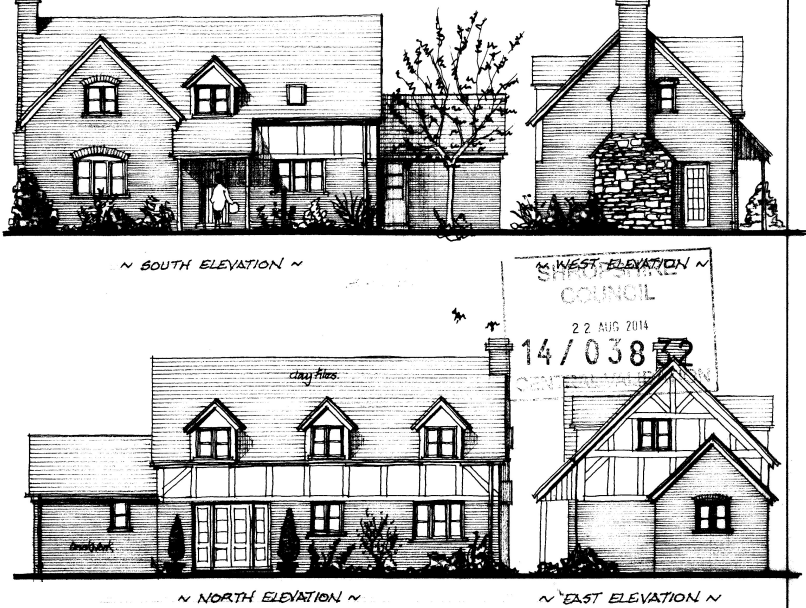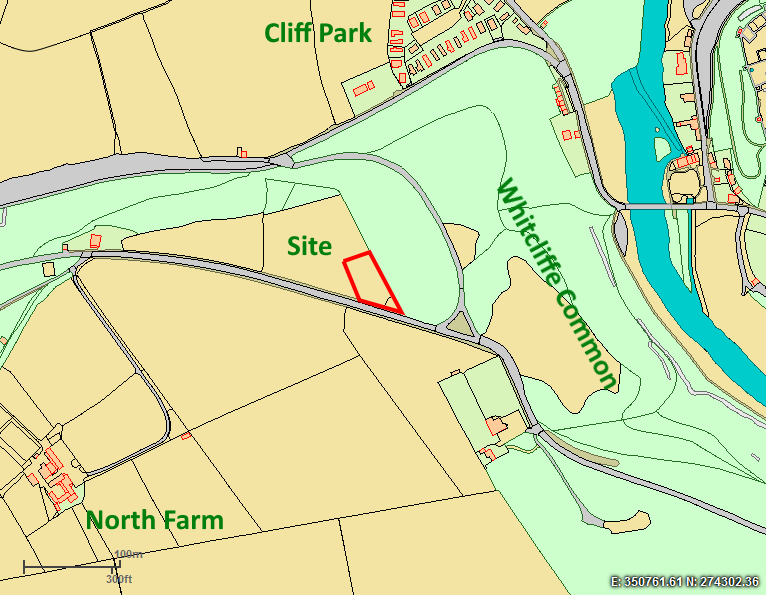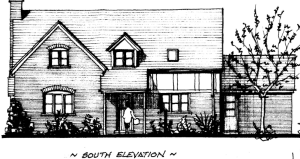The owners of the riding school and camp site at North Farm applied for planning permission to build a “traditional style” house just above the Whitcliffe Common more than a year ago (14/03832/FUL). On Wednesday, planning officers threw the plans out saying that they conflict with SAMDev. The applicants have also failed to provide sufficient information on the potential ecological impacts of the scheme.


The lack of a satisfactory ecological report surprises me. The applicants had submitted a report but the council’s ecologist said it did not contain sufficient information on badgers, bats, reptiles and botanic species. Given that the proposed building lies in Whitcliffe Common Local Wildlife Site and within yards of the Whitcliffe Common Reserve, it was always clear that any development would not be approved unless the ecologist was satisfied. So I don’t know why a more detailed report was not submitted.
It does not surprise me that the site was thrown out on SAMDev grounds. SAMDev is our local plan and it will become formal policy for Shropshire on 17 December. Until then it has “substantial weight” in planning decisions. The text of SAMDev is clear. New buildings in Ludlow must be within the development boundary. There have to be exceptional reasons to build outside the boundary and usually only affordable housing is allowed. This site lies outside the development boundary and is a market dwelling, not affordable.
Paul and Lin Dicken put up a good case for this development. They want to build a house they will move to and eventually retire in. In the meanwhile, their daughter and her husband will take a bigger role in the business, moving into North Farm. The camping site and riding school are important businesses to the local area, especially Peter’s laudable work with Riding for the Disabled. But the site chosen for their house, and that it was not an affordable house, meant it had little hope of approval under current planning rules.
The irony, and I am sure that the applicants will be frustrated with this, is that when the plans were submitted, there was every chance they would have been approved. In August 2014, we did not have a five-year land supply as required by national planning rules. SAMDev had yet to be subject to public examination. So local planning rules on housing were legally out of date and almost any sustainable development could be approved. However, the applicants would have had to satisfy the ecologists as local planning rules on the environment remained in force, and national and EU rules give clear protection to many species.
This is a case where we need to find a way to ensure than a local business, particularly one that does so much good work for disabled people, can be sustainable in the long term. I don’t think we should build market housing in the countryside unless allowed in SAMDev. But we shouldn’t back ourselves into a position where we force families running a rural business to live apart.

